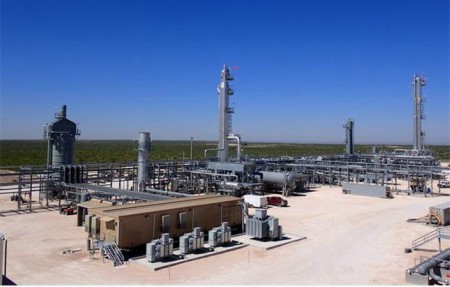EU Joint Gas Buying Scheme Attracts Demand From 65 Firms
(Reuters) — More than 60 companies have submitted demands to buy gas through the European Union's scheme for joint purchases, with the bloc aiming for the first deals to be signed within months.
The EU is launching a joint gas buying scheme to help fill gas storage ahead of winter - and avoid a repeat of the record-high energy prices and fears of energy shortages in Europe last year after Russia slashed gas deliveries.
In the scheme's first demand-collecting round, which closed on Tuesday, 65 European companies registered demand to jointly buy gas, EU Commission Vice President Maros Sefcovic said.
In total, 101 firms have now registered interest in the platform either as buyers or sellers - an initial response that Sefcovic said had "exceeded our expectations".
Sefcovic said the scheme aimed to improve gas market access for smaller companies and tame energy prices for Europe's energy-intensive industries like fertilizer and steel producers.
"The prices as we have seen them last year, and I would say even prices until now - we cannot accept them as a new normal," he told Reuters in an interview.
Czech energy firm CEZ, Spain's Cepsa and Poland's PKN Orlen are among the companies that plan to take part in the joint buying scheme, spokespeople for the firms said.
Around 19 of the 101 companies registering interest have also signed up as intermediaries to represent multiple smaller firms that want to pool their demand.
EU officials have said some large energy firms had expressed reluctance to take part, questioning what incentive they had to join as they can already negotiate their own gas deals at competitive prices.
Most of the registered gas demand — 77% — is for deliveries to points in pipeline networks, while 23% is for liquefied natural gas, Sefcovic said.
He declined to confirm the outright volume of gas being sought through the scheme, which cannot purchase Russian gas.
"We are reaching out to all international suppliers with the exception of Russia," Sefcovic said.
As a next step, the EU platform will collect offers from suppliers, and match buyers with suppliers by 17 May.
Matched companies will then negotiate gas contracts. The EU will not be involved in those commercial talks.
Brussels wants the first deals to be signed in June or July and plans to repeat the tendering process every two months. So far, the demand requests cover deliveries from June to May 2024.
Europe has emerged from winter with better levels of energy security than some had feared thanks to mild weather, lower industrial production and emergency energy-saving policies.
EU-wide gas storage is unusually full, at 60% of capacity, Gas Infrastructure Europe data show. But analysts say risks remain that could still cause shortages this year.
EU countries are required to fill gas storage to 90% by November. The joint buying scheme aims to gather enough demand to cover 15% of that obligation — equivalent to around 13.5 billion cubic meters of gas, a fraction of total EU demand of around 360 Bcm.
Related News
Related News

- Kinder Morgan Proposes 290-Mile Gas Pipeline Expansion Spanning Three States
- Three Killed, Two Injured in Accident at LNG Construction Site in Texas
- Tallgrass to Build New Permian-to-Rockies Pipeline, Targets 2028 Startup with 2.4 Bcf Capacity
- TC Energy Approves $900 Million Northwoods Pipeline Expansion for U.S. Midwest
- U.S. Moves to Block Enterprise Products’ Exports to China Over Security Risk
- U.S. Pipeline Expansion to Add 99 Bcf/d, Mostly for LNG Export, Report Finds
- Enbridge Adds Turboexpanders at Pipeline Sites to Power Data Centers in Canada, Pennsylvania
- Great Basin Gas Expansion Draws Strong Shipper Demand in Northern Nevada
- Cheniere Seeks FERC Approval to Expand Sabine Pass LNG Facility
- Heath Consultants Exits Locate Business to Expand Methane Leak Detection Portfolio





Comments